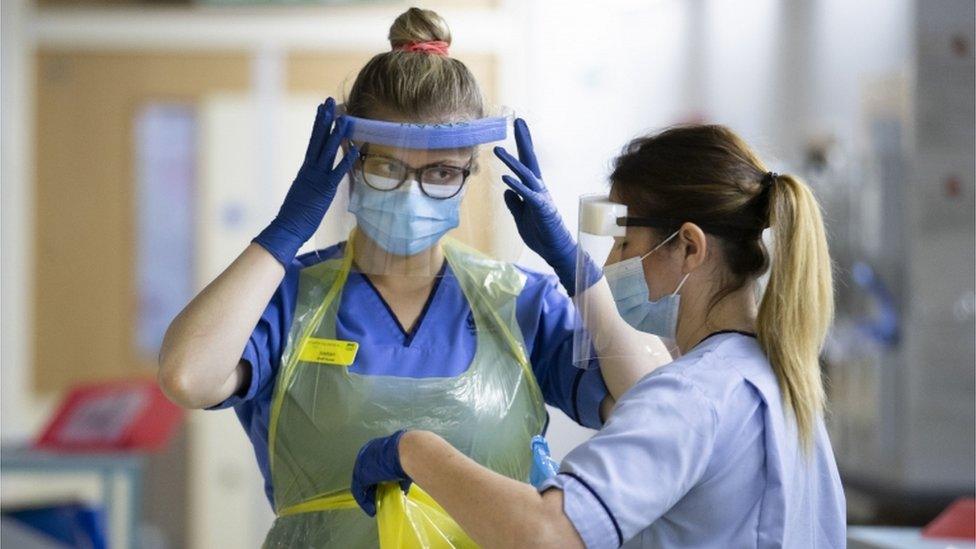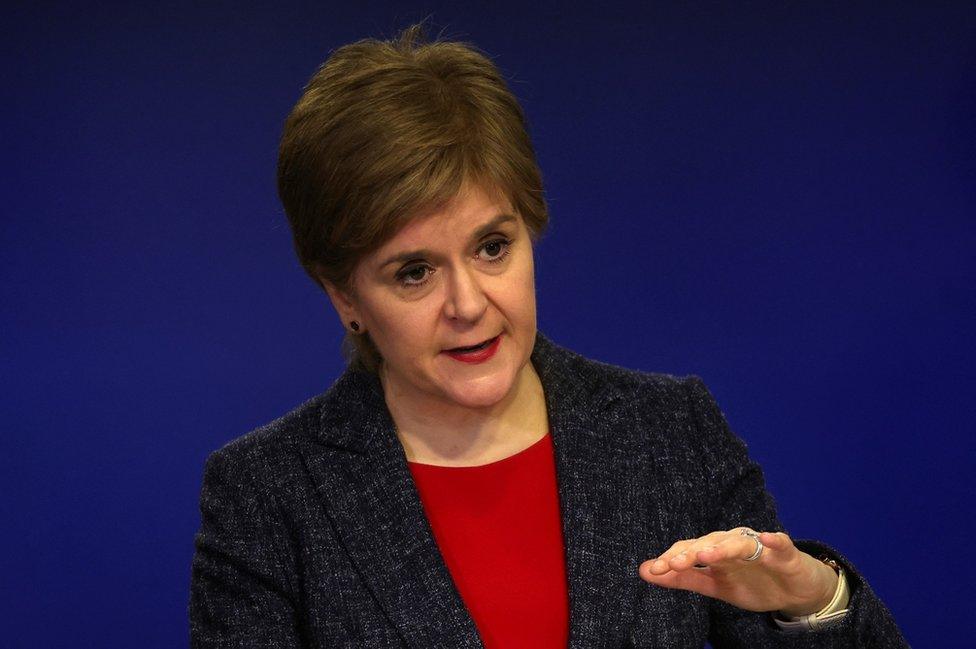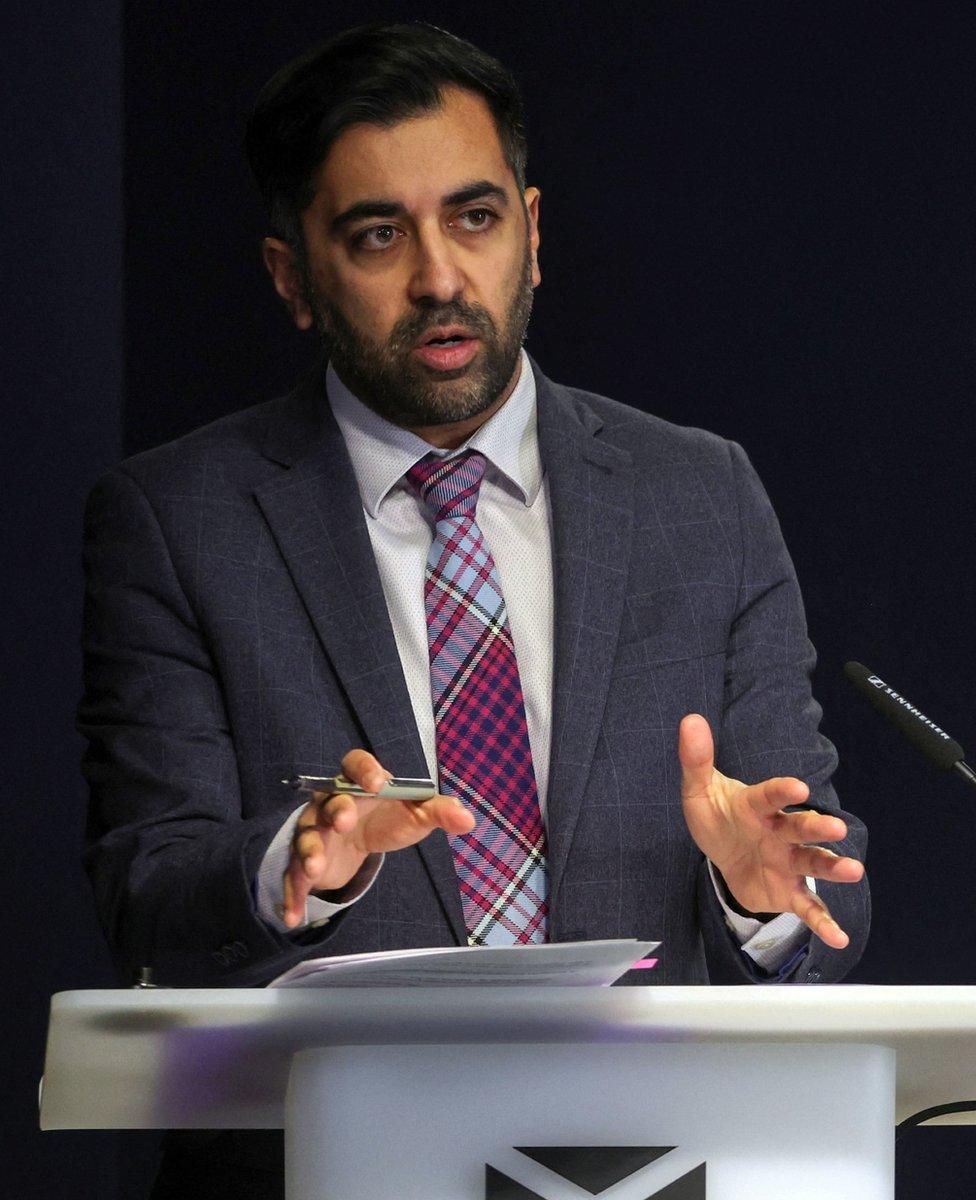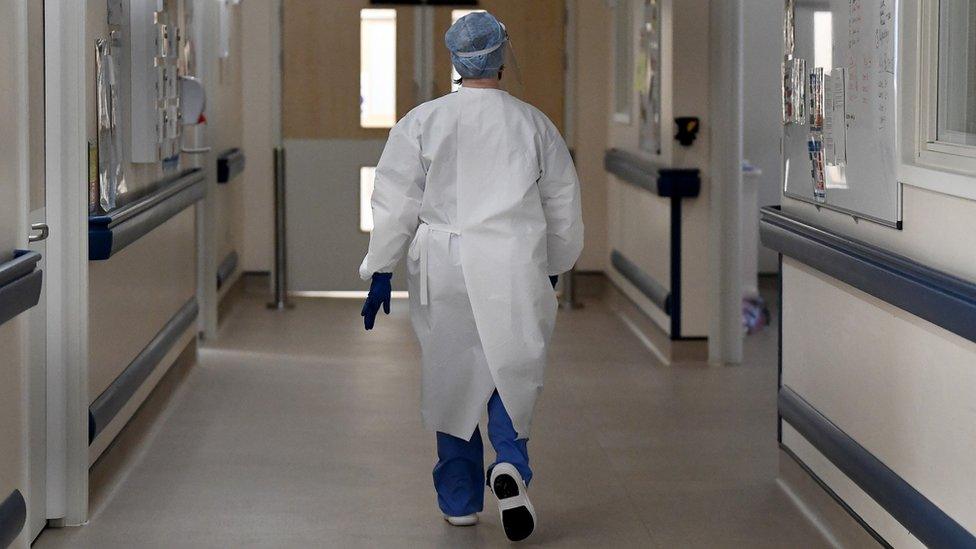Why is the NHS under so much pressure?
- Published

No politician in power wants to say it out loud, but it is a fact that patients are dying because of poor quality care in the ailing National Health Service.
The Royal College of Emergency Medicine has estimated that delays in emergency care are costing up to 500 lives a week throughout the UK, including perhaps 40 a week in Scotland, external.
So what's gone wrong?
Critics say, external the health service is struggling because of staff shortages, a lack of social care places for patients waiting to leave hospital, and because it has among the lowest levels of critical care beds in the rich world.
The situation is grim throughout the UK, and indeed beyond, but here in Scotland it's Nicola Sturgeon's SNP which has been in power since 2007, so it was the first minister who faced the cameras in Edinburgh.
Ms Sturgeon accepted that the NHS was under pressure even before the pandemic struck in 2020 but she attempted to defend her record as health secretary and first minister.
She pointed to spending on additional care home places and insisted that an additional 20,000 health staff had been hired in the past 15 years.
However, she did not mention that the latest NHS Scotland workforce figures also refer to 6,319 nursing and midwifery vacancies, external.
Ms Sturgeon suggested that the number of critical care beds needed in advanced societies had reduced over time because of improvements in medicine.
The doctors' union, the BMA, says however that the UK as a whole is lagging far behind comparable countries, external.

First Minister Nicola Sturgeon faced questions at a briefing in Edinburgh
The first minister pointed out that her budget was constrained by Westminster, but neglected to add that public spending per head was £1,963 per person higher than the UK average, external in 2021/22, according to statistics endorsed by her own government.
The SNP leader also came under repeated questioning about the grim assessment of the state of Scotland's hospitals set out by Dr Lailah Peel, deputy chair of BMA Scotland, who had told BBC Scotland's Sunday Show that patient safety was now "at risk every day" in the country's A&E departments.
The first minister did her best to suggest she did not agree without criticising the professional judgment of a senior Scottish doctor.
Standing alongside Ms Sturgeon, and under even more pressure, was Health Secretary Humza Yousaf. Both the Conservatives and Labour continue to call for his resignation over the government's handling of the NHS crisis.
Mr Yousaf's expression was stern as he was asked, very bluntly, whether he was actually up to the job. It remained grim as he listened to his boss defend him.

Health Secretary Humza Yousaf has been under pressure
The pressure may ease a little if he can do a deal with the Royal College of Nursing and other unions to avert planned strike action over pay. That will be difficult. As everyone knows money is exceptionally tight and it's not just the NHS which is under pressure.
Taking a step back though, is it time for a more fundamental reassessment of the state of health and social care in Scotland and the rest of the UK?
As BBC News revealed in November, remarkable discussions have been taking place inside the service about whether it needs to change dramatically in order to survive, with senior NHS leaders in Scotland even discussing the possibility of moving to a "two-tier" system.
Describing a "billion pound hole" in the budget, minutes of a high-level meeting suggested it was "not possible to continue to run the range of programmes" the NHS currently offers while remaining safe "and doing no harm".
They also contained a warning which critics say was particularly prescient, suggesting that: "Unscheduled care is going to fall over in the near term before planned care falls over."

Opposition parties responded by arguing that in some respects a two-tier system was already here, with those who could afford it (and some who couldn't) paying for private care rather than suffering for months or even years as they wait for the state to help them.
Nicola Sturgeon rejected the notion that the NHS was doomed then and she continues to reject it now.
She insists she is utterly committed to the founding principle of a public health service free for all at the point of need.
She does, however, accept there is a need for the NHS to "adapt, change and reform".
The first minister, in common with Prime Minister Rishi Sunak and other politicians throughout the UK, is likely to come under increasing pressure to set out in more detail exactly what that means if the current crisis - and all the misery and death it entails - is not to become a permanent feature of the NHS.